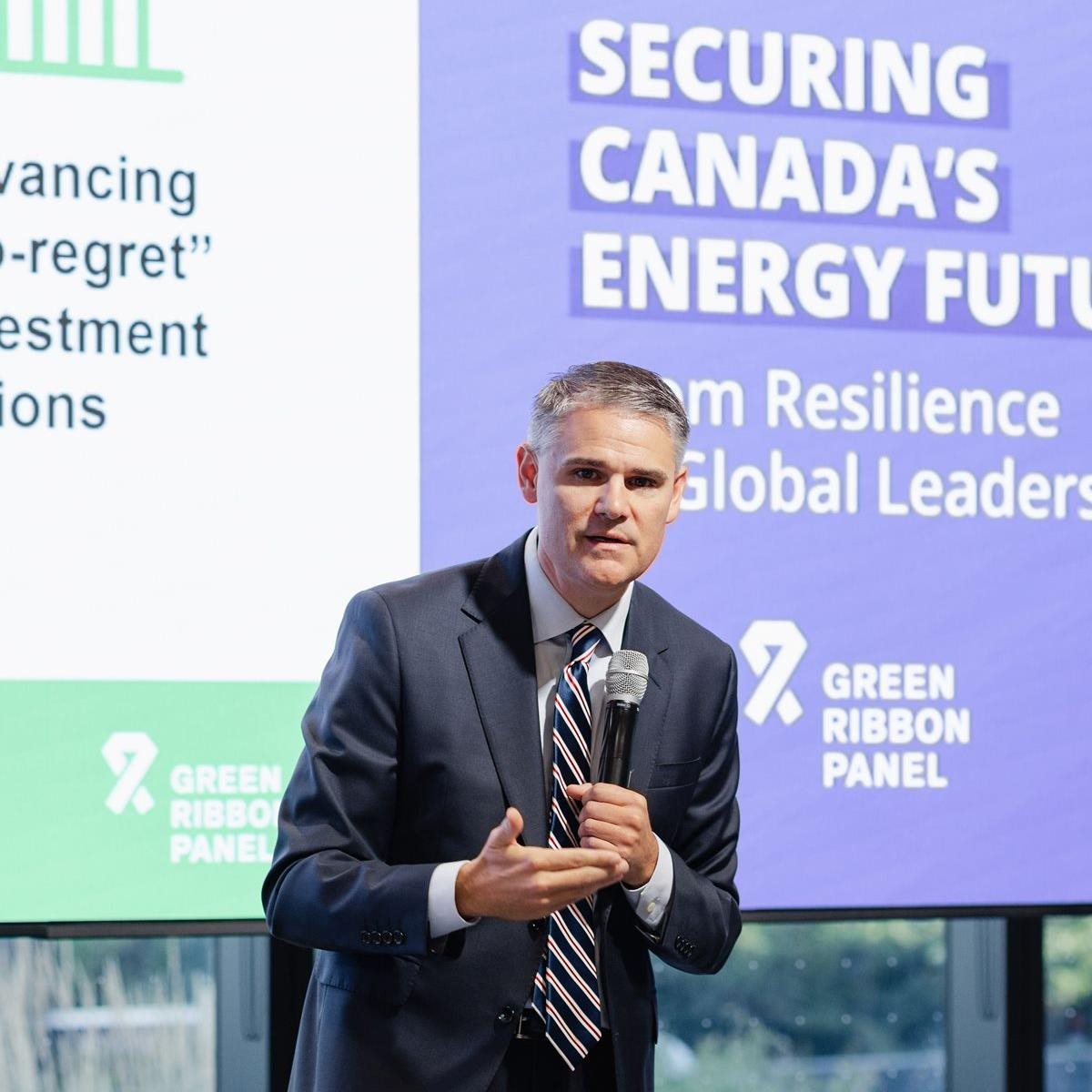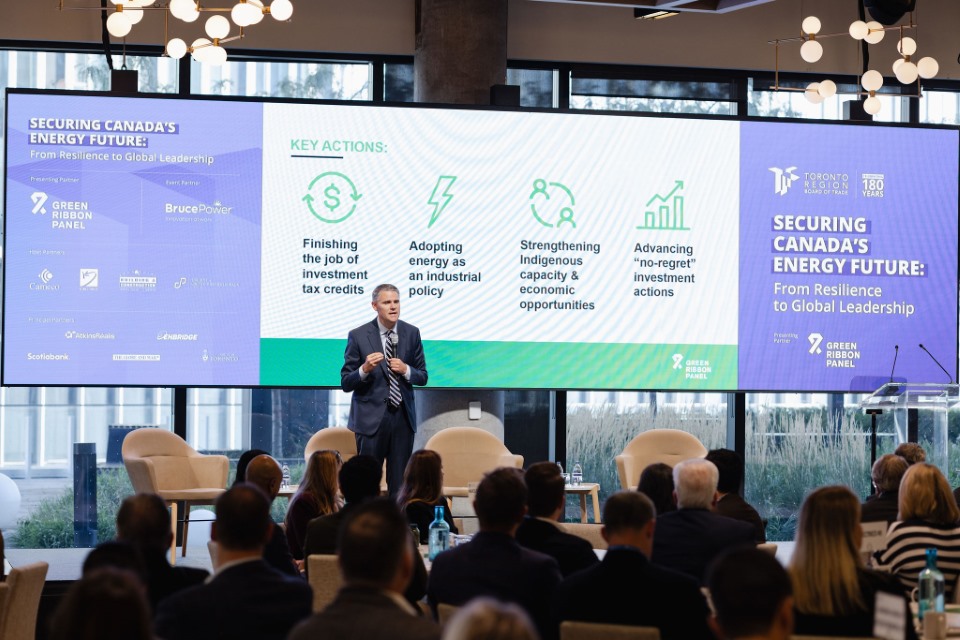
For decades, Canada’s competitive edge has been well planned, robust infrastructure, designed to support our population and economic growth. We built our country and our infrastructure with discipline. Railways, refineries, power plants: these weren’t accidents, they were the result of planning ahead and following through. Somewhere along the way, that discipline slipped.
The Green Ribbon Panel — a group of leaders from across Canada’s energy sector — is seeking to bring that discipline back. They came to our stage to renew their mandate and to be clear about what it will take for Canada to secure its energy future.
Panel Chair James Scongack, COO & EVP at Bruce Power, acknowledged the scale of the challenge but stressed it is manageable if Canada gets focused. The task, he said, can feel overwhelming, “but you eat an elephant one bite at a time.”
That mix of urgency and confidence carried through the discussion. Maura McDonald, Vice-President, Key Accounts and Stakeholder Management at CANDU, pointed to Canada’s strength: not being the cheapest, but being reliable. Ontario’s real advantage, she explained, is “the predictability and quality of what we deliver” the very qualities that have made Canada a trusted global partner in nuclear energy.
But, quality alone won’t be enough. Our President & CEO, Giles Gherson, was direct: Canada’s brand has slipped. “Our quality is good,” he said, “but that’s irrelevant if we can’t get big stuff done. Our problem in terms of attracting investment is that our brand has become that of a place where you can’t get things done. That brand has to change. So let’s treat today as a starting pistol for the work to come.”
Canada now has a choice continue drifting, or act with the discipline that once built this country’s prosperity.
Canada must plan again
Canada’s energy future will not be secured by short-term thinking. We once built prosperity by planning big and seeing projects through. That same discipline is needed now to deliver energy security and global leadership.
Four elephant bites define the path
The challenge is big, but it can be tackled step by step. Four priorities will move Canada forward:
- Finish the job on investment tax credits. Certainty is what makes projects move ahead here instead of somewhere else.
- Build the supply chain. Canada must seize its place in the global clean energy build-out. More than 200 nuclear projects are already underway worldwide, alongside rising demand for renewables, hydrogen, and small modular reactors. The window is open, but it will not stay open forever.
- Strengthen Indigenous partnerships. Projects last when Indigenous communities are leaders from the start. Loan guarantee programs, equity stakes, and workforce training are key tools to build trust and ensure prosperity is shared.
- Advance no-regret actions. Streamlining approvals for grid connections, fast-tracking SMR demonstration sites, and cutting duplicative permitting are steps that can de-risk projects and get shovels in the ground faster.
200
Nuclear power projects already being built worldwide. If Canada builds, or is part of the supply chain for even a fraction of these projects, it would mean thousands of new jobs and billions in exports.
60%
Ontario’s electricity generated by nuclear power, proof that Canada already delivers clean and reliable energy at scale.
100%
Our electricity system operator anticipates Ontario’s energy demand will jump 100% by 2050 — far higher than the 60% increase projected only two years ago.
285,600
Canadians directly employed in the energy sector today. The number will grow if Canada secures its share of global clean energy investment.
$199B
Value of Canadian energy exports in 2023, showing how central energy already is to national prosperity.

“These policy tools are not abstract. For the trades, they mean good jobs, predictable timelines, and the confidence to train the next generation of workers. That is why finishing tax credits and cutting red tape is not just about competitiveness, it is about people and livelihoods.”
— Marc Arsenault, Business Manager, Provincial Building and Construction Trades Council of Ontario
"Global nuclear projects are moving ahead at record pace. If Canada wants to be a serious player, we need to be in that supply chain, from fuel to components to engineering. We have the expertise, but without policy certainty others will fill the gap."
— John R. MacQuarrie, President, Commercial Operations, BWXT
"Business needs clarity and speed. Our members do not ask for guarantees, they ask for predictability. If we can provide that, Canada will attract the capital and partnerships to lead in clean energy. If we cannot, those dollars will flow elsewhere."
— Dan Tisch, President & CEO, Ontario Chamber of Commerce
"What makes this conversation different is that we are not just talking about what could be. We are talking about what is practical and actionable right now, what can be done tomorrow morning to move projects forward and make Canada more competitive."
— Jessica Linthorne, President & CEO, Nuclear Innovation Institute
Thank you to our partners who helped make this event possible.












